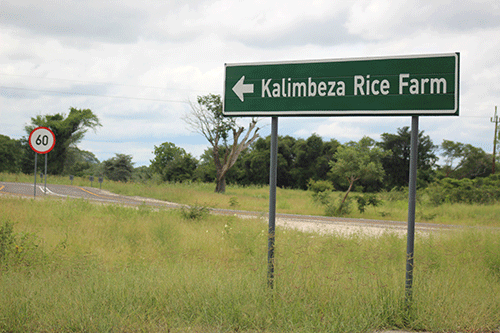The standing committee on agriculture, environment and natural resources on an oversight visit to green schemes found there was little support for the envisaged private leasing of the facilities by those on the ground.
Farm managers are of the view that green schemes were performing well under the direct supervision of the government; however, operations started slowing down with the introduction of AgriBusDev as a service provider.
They further lamented a cabinet resolution to outsource fully-developed green schemes to private entities.
They expressed the issue of leasing green schemes left a dark cloud of uncertainty hovering over farm managers and staff members, who were left pondering as to what will happen to them, as there was no consultation.
The Standing Committee on Agriculture, Environment and Natural Resources visited two regions and five green scheme irrigation projects.
The green scheme programme encourages the development of irrigated agronomic production along Namibia’s perennial rivers and in strategic inland areas, where water is abundant.
However, government has moved to lease out unproductive green scheme farms to investors; it has decided to hold onto three, as it can sufficiently finance their operations.
The oversight visit, conducted from 30 August 2022 to 2 September 2022, was, therefore, meant to follow up and assess the progress made at the green schemes in terms of food production since the last visit.
National Council member and chairperson of the committee Melanie Ndjago said the committee noted with concern that challenges observed or listed by the Standing Committee on Urban and Rural Development during its oversight visit from 23 February 2020 to 6 March 2020 were still not resolved.
She said these issues continued hampering the production level of Green Scheme Projects in Kavango West and Kavango East regions.
Key to the discussions with farm managers was that electricity bills continue threatening the suitability of green schemes through the demand charges by NORED.
Bureaucratic processes in the procurement of farming inputs (seeds) that delay production was also mentioned.
Another aspect is marketing, whereby small and medium-scale farmers have to endure travelling long distances to sell the gains in Tsandi, Omusati region, incurring unnecessary transport expenses.
“AMTA does procure from green schemes but takes a long to pay, a situation that is affecting green schemes’ cash flow,” the committee observed.
Cabinet took a decision last year, which terminated the institutional arrangement for AgiBusDev to manage the green schemes by 1 September 2022.
All procurement processes were put on hold until the mid-year budget review in late October 2022.
The committee engaged with technical staff from the agriculture ministry on 15 August 2022, and it was revealed that the issue of demand charges by the Northern Regional Electricity Distributor (NORED) has been resolved.
However, the committee’s visit to the regions proved this not to be the true reflection on the ground when the committee visited green schemes.
note of the supposed 190Kw solar power installed at the Kalimbeza rice project.
However, the committee is unable to independently confirm such installation, as it was advised to postpone the follow-up oversight visit to the Zambezi region at the eleventh hour.
The committee recommends that the ministry installs solar power plants at all fully developed green scheme projects across the country to reduce electricity bills for the coming 2023/24 financial year.
Thus far, a 190Kw solar plant was installed at the Kalimbeza rice project to the tune of N$2.5 million – and this, on average, drastically reduced electricity consumption from N$150 000 to N$5 000 per month. The ministry is, therefore, planning to install solar plants at Sikondo, Shadikongoro and Etunda for the coming 2023/24 financial year.
Equally, the committee recommend that the ministry increases or makes more funds available to fully developed green schemes.
The members also suggest there should be a conducive marketing environment created for small and medium-scale farmers to sell their produce without having to travel long distances to access such facilities.
The committee recommends that a proper audit be instituted after the dissolution of AgriBusDev into the ministry of agriculture to ensure government assets are not lost in the transition period.
– anakale@nepc.com.na


